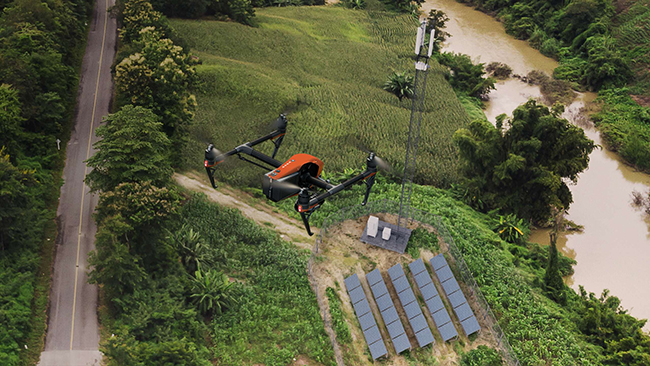Ericsson is launching Radio 6626, a unique three-sector dual-band radio to help service providers increase their Frequency Division Duplex (FDD) 5G frequency capacity, even as their site towers already have 2G, 3G and 4G radios.
The latest addition to Ericsson’s radio portfolio will provide multi-standard and multi-band coverage while bringing down costs and reducing footprint – up to 50 percent lower energy consumption.
The three-sector dual-band Radio 6626 combines two frequencies and six ports in one unit, enabling one radio to power all three sectors on the tower. This 6T6R radio supports 2G to 5G mobile standards.
Available in a 900 MHZ and 800 MHZ dual-band version, as well as 1800 MHZ and 2100 MHZ dual band, Radio 6626 arms CSPs with added support to boost capacity while addressing cost-related challenges.
Powered by Ericsson Silicon, Ericsson Radio 6626 can provide 720W of output power and weighs under 45kg.
The new product’s efficiency is driven by tight hardware and software co-design.
Ericsson is also launching the Voltage Booster 6640, which minimizes the need for new cabling, as it expands the power capacity to the radios by up to 50 percent using existing cables. By adding the Voltage Booster rather than swapping cables, the service provider can save up to 70 percent of hardware and installation costs.
The end-to-end offering also includes:
- Baseband 6631: the latest multi-standard RAN Compute pathway for towers that run multiple technologies from 2G to 5G
- Microwave-based MINI-LINK 6352: adds up to 10Gbps with E-band, aggregating with existing microwave radios. The multi-band booster design increases backhaul capacity with zero footprint and reduced OPEX
The new products complement the recently launched ultra-light Massive MIMO and RAN Compute portfolios – aimed at making it easier for CSPs to roll out commercial 5G services.
David Hammarwall, Head of Product Line Radio, Ericsson, says: ”Our new triple-sector, dual-band radio offers an opportunity for communications service providers to significantly reduce radio footprint and installation time needed on site, while at the same time lowering total power consumption by up to 50 percent. This will help our customers to increase capacity and further accelerate 5G coverage with the ubiquitous FDD bands.”
Patrick Pisal-Hamida, Group Chief Executive Officer, Telma Madagascar, says: “The new multi-band, multi-sector, high-power radios from Ericsson will meet Telma’s need for more efficient tower upgrades. They will bring tangible Opex benefits in minimizing power consumption, weight on tower, and faster rollout. We are excited to deploy Ericsson’s multi-standard technology solutions with the smallest footprint in the industry.”


COMMENTS